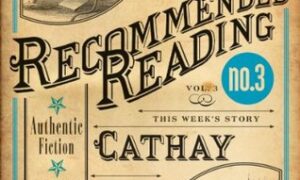 The Friend by Sigrid Nunez
The Friend by Sigrid Nunez
My rating: 3/5 cats



despite my joy over twinkle lights and tiny notebooks &etc, i was apprehensive when i got this book in my quarterly literary fiction box from pagehabit. let’s just say this isn’t a good time of year for me to be reading books about suicide OR books where beloved animals might die. but this isn’t a tearjerker by any means – for a book about grief, it’s almost entirely cerebral, and most of the emotional responses to death are centered in the behavior of the dog whose master has just died.
it’s somewhere in-between a letter and a novel, without being shaped like either – a series of loosely connected, stream-of-consciousness musings written in second-person, where the “you” is not the reader, but the narrator’s recently deceased longtime friend and mentor, whose unexpected suicide left behind a widow, two ex-wives, a career’s worth of students and readers, the narrator herself, and a 180-pound great dane named apollo. apollo is more or less foisted upon the narrator by wife three, despite her enviably rent-stabilized manhattan apartment’s “no dogs” policy, and they build a companionship upon their shared loss.
the narrator is also a writing teacher, and this book feels like a writing assignment: write a book about the grieving process without being emotionally manipulative, without any named (human) characters, without a traditional plot or narrative structure. also, name-drop, quote, and reference at least fifty writers. per chapter. the result is unusual; grief manifesting in a clinical, detached way, frequently as physical symptoms of emotional distress. but ironically, it’s this self-consciously strict refusal to commit to or indulge any emotional response on paper that makes the pain stand out that much more; the control and the effort that control must require.
a lot of the novel is about writing in general and about writing as therapy – it’s a recurring theme in a book in which recurrence itself is a theme. there’s always more than one thing going on in any given passage, something harkening back to, or presaging, another passage – it’s all very intricate while giving the illusion it’s unconcerned with structure.
a sample page:
A friend of mine who is working on a memoir says, I hate the idea of writing as some kind of catharsis, because it seems like that can’t possibly produce a good book.
You cannot hope to console yourself for your grief by writing, warns Natalia Ginzburg.
Turn then to Isak Denisen, who believed that you could make any sorrow bearable by putting it into a story or telling a story about it.
I suppose that I did for myself what psychoanalysts do for their patients. I expressed some very long felt and deeply felt emotion. And in expressing it I explained it and then laid it to rest. Woolf is talking about writing about her mother, thoughts of whom had obsessed her between the ages of thirteen (her age when her mother died) and forty-four, when, in a great, apparently involuntary rush, she wrote To the Lighthouse. After which the obsession ceased: I no longer hear her voice; I do not see her.
Q. Does the effectiveness of catharsis depend on the quality of the writing? And if a person finds catharsis by writing a book, does it matter whether or not the book is any good?
My friend is also writing about her mother.
Writers love quoting Milosz: When a writer is born into a family, the family is finished.
After I put my mother in a novel she never forgave me.
Rather than, say, Toni Morrison, who called basing a character on a real person an infringement of copyright. A person owns his life, she says. It’s not for another to use it for fiction.
there are some absolutely gorgeous moments in this book – some excellent lines and inspired observations and unexpected connections, but that’s what it left me with – i felt like i had experienced several small lovely moments without having read something… complete? i’m not able to articulate it with any precision right now, but it’s something like this book pleased me on an analytic level without allowing me any more immersive pleasure but that it also it kind of felt like when i used to have seizures – there’d be a sensation of time passing punctuated by flashes of clarity but no sense or understanding of the event as a whole.
TLDR – i liked it, but i didn’t love it.
although – look how cute it is under the hood:

*******************************************
my new quarterly literary fiction box from pagehabit has arrived!!

oh, man – i have a LOT of catching up to do!! but what fun it will be to do so!







